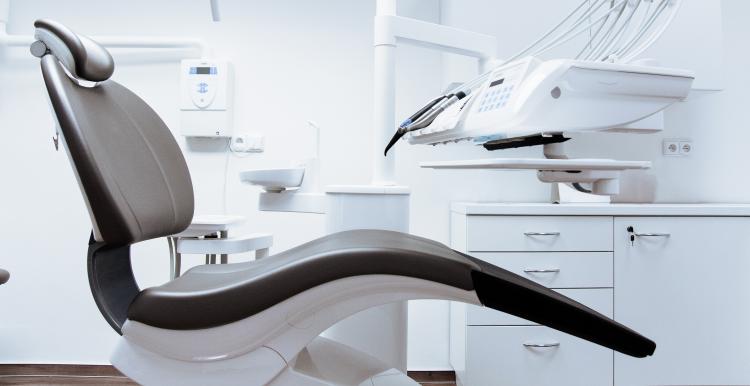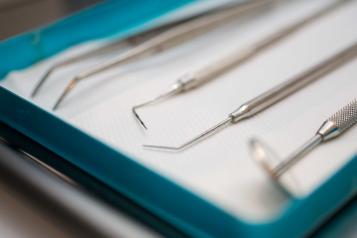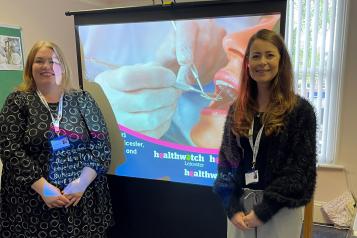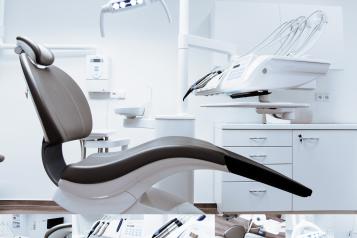Update on access to NHS Dental Services in the Midlands - March 2021

As you will be aware, the dental sector has faced particular challenges during the pandemic due to the proximity between a dental professional and a patient’s airway and the relatively high proportion of aerosol generating procedures (AGPs) undertaken.
General Dental Practices
We have been supporting high street dentists and their teams to see as many patients as safely possible, including recently commissioning additional weekend activity at 91 dental practices across the region.
Throughout the lockdown (as under tiered restrictions) dental practices are open to see patients and accessing health and dental care is a valid reason for leaving home.
Most practices are now providing face to face care, but enhanced infection control and social distancing measures mean that the capacity for dental practices to see patients is still restricted, with the management of urgent patients and those in vulnerable groups remaining the priority. This may mean longer waits for routine check-ups.
Hospital dental treatment
As is the case with some other routine hospital treatments, unfortunately there are still long waiting times for some in-hospital dental care. This is a result of the pressures hospitals have faced in dealing with large numbers of Covid cases and the need to pause some routine care. Any patients needing urgent treatment should still be seen, but less urgent cases may experience longer waiting times than usual. Should a patient’s symptoms worsen whilst they are on a waiting list, they should contact their dentist. We are considering plans to identify extra capacity to address backlogs, once hospitals can restart routine care.
Children’s orthodontic services
There are no restrictions currently imposed on the fitting braces for children who have been waiting for orthodontic treatment, although start dates for treatments may be delayed due to capacity issues (as for general dental services).
All orthodontists have been free to continue providing services to patients since practices opened back in June 2020 although they will initially have prioritised patients already in care. They will be prioritising urgent cases and there may also be delays starting treatment where children need teeth extracted prior to getting braces fitted (due to the restrictions at high street dentists and in hospitals). Commissioners have not suspended services, withdrawn funding or put any restriction on the starting of new cases.
We are clear that patients should not feel pressured to get private treatment and also that those who face a delay to starting treatment will not face any patient charges if they reach the age of 18 whilst awaiting treatment.
NHS England's advice for people seeking NHS dental care is as follows:
People should continue to contact their local dental surgery by phone for advice on dental care and treatment. Out of usual surgery hours patients should contact NHS 111. Patients are still expected to pay normal dental charges (unless exempt) but should not be charged extra.
Most dentists will require patients to be clinically assessed by phone or video consultation prior to being seen in the dental surgery should this be needed. Dental practices can prescribe antibiotics or painkillers by phone.
NHS patients should not be told that they can only access care privately. Dentists continue to prioritise those needing urgent treatment and vulnerable patients and many will have reduced capacity so routine appointments for some patients may be delayed.
Patients who do not have a regular dentist or have not recently accessed NHS Dental care should contact NHS 111. It is often quicker and easier to use the online system rather than phoning. Patients will then be directed to a dental practice who can assess them by phone and if needed they will be offered face to face care at a practice with capacity to see them.
Patients that are offered dental appointments in whatever setting, including hospitals, should comply with instructions when attending appointments and wear masks (unless exempt) – this is for their safety and the safety of staff.
If for whatever reason, patients are not able to attend they must let the practice/hospital know in advance to enable them to offer the appointment to another patient.
Anyone who feels unwell or has any Covid-19 symptoms or is self-isolating following contact from NHS Test and Trace should not visit their normal surgery even if they have a confirmed appointment. It is important for patients to be honest about whether they are symptomatic or have been asked to self-isolate. Dedicated Urgent Dental Centres continue to operate where symptomatic or self-isolating patients needing urgent care can be seen and treated.


